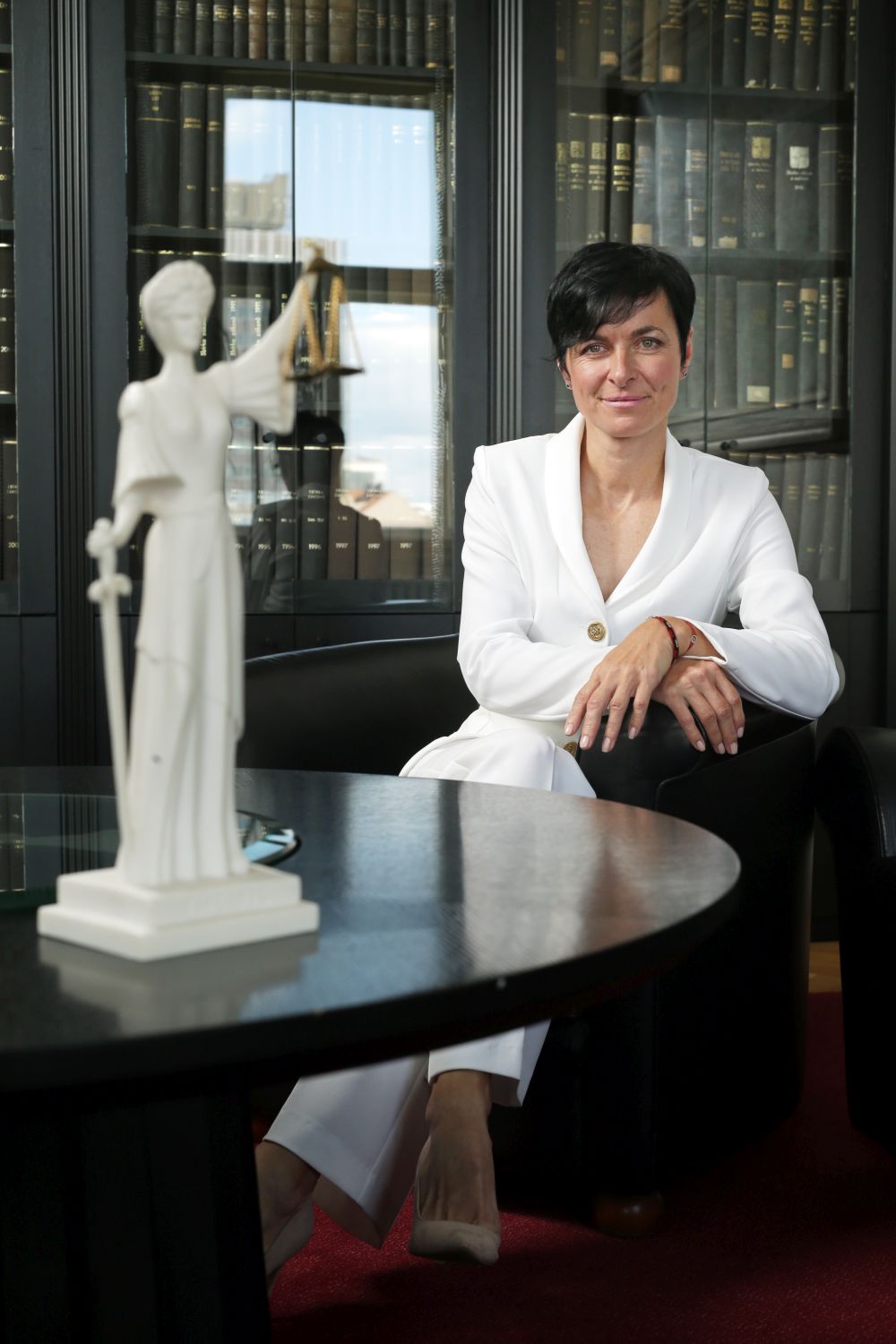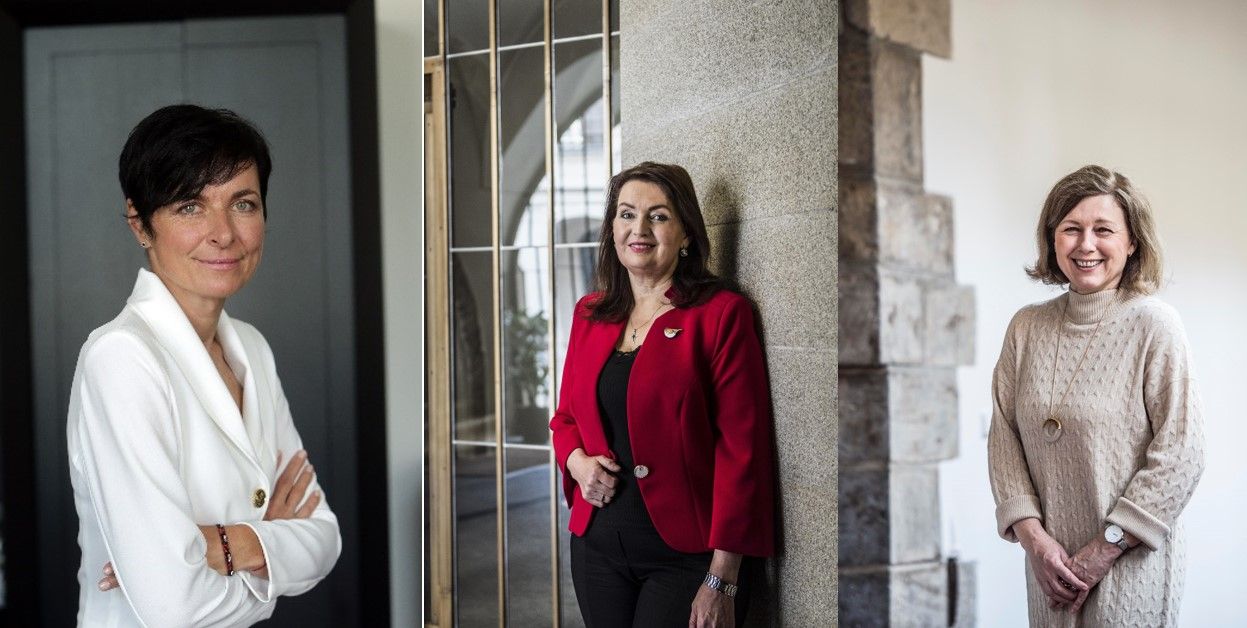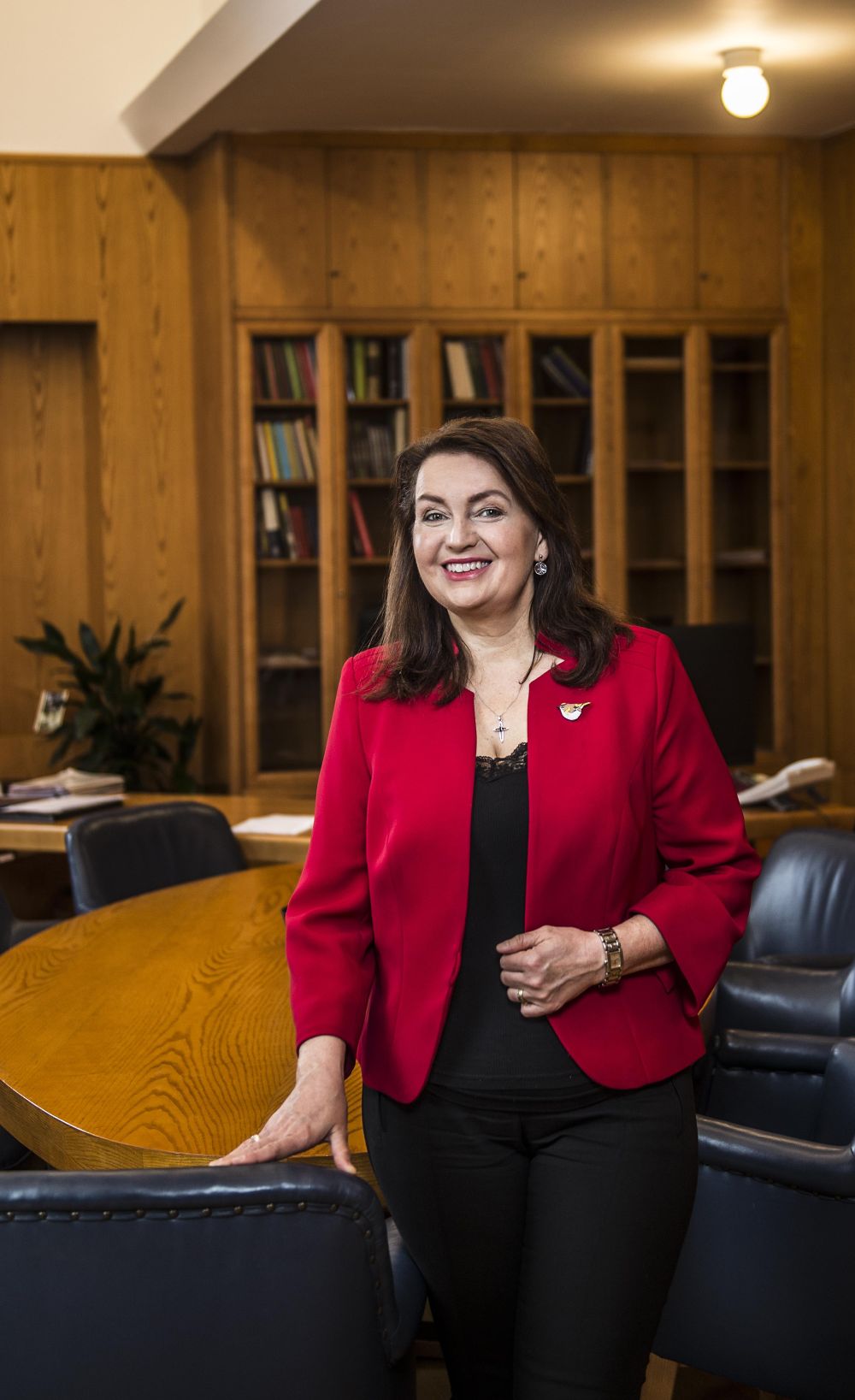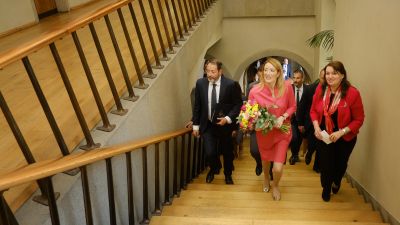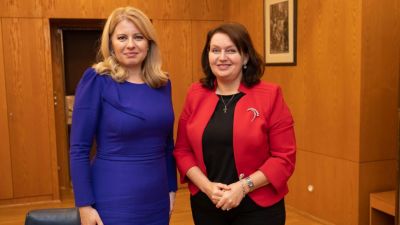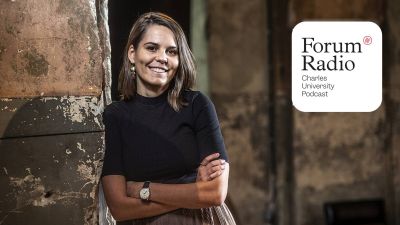Professor Milena Králíčková, the rector of Charles University, is one of the most influential women in the Czech Republic. She is ranked 36th on the list of the most influential women published annually by the Czech edition of Forbes magazine. Other women associated with Charles University also topped the list. Among the most influential, the magazine included the Vice President of the European Commission for Values and Transparency, Věra Jourová, who graduated from the Faculty of Arts and the Faculty of Law at Charles University, the speaker of the Chamber of Deputies, Markéta Pekarova Adamová (an alumna of the Faculty of Arts of Charles University) and the Chief State Prosecutor in Prague, Lenka Bradáčová (Faculty of Arts of Charles University).
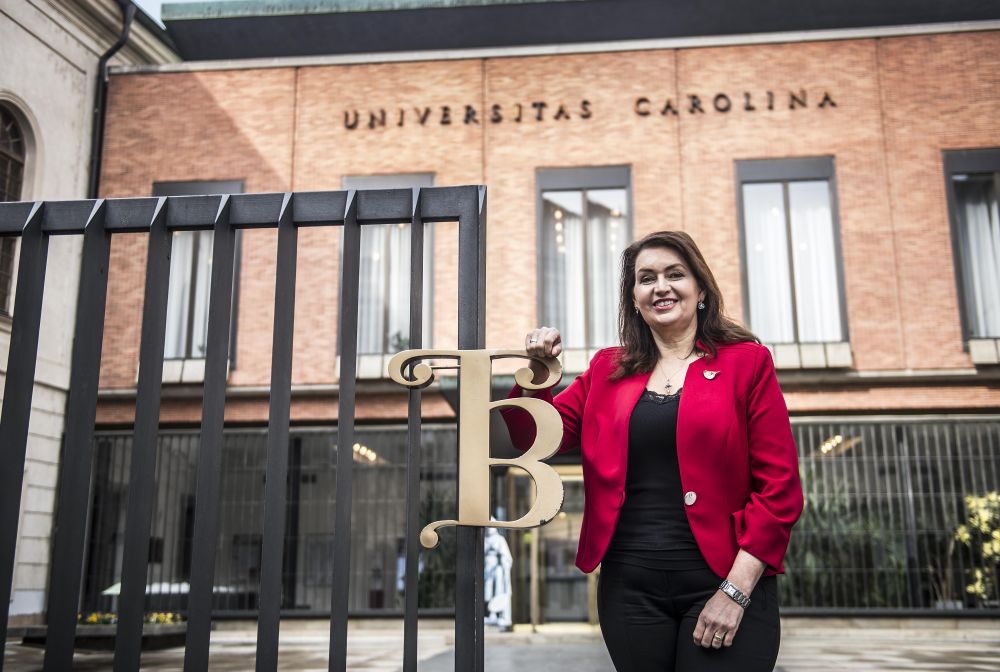
According to Forbes Czech Republic, the rector of Charles University, Professor Milena Králíčková, is one of the most influential women in Czechia.
The editors of Forbes magazine compile the ranking based on a methodology developed by their colleagues at the parent American title. Every year, they announce a hundred women from various fields who have a direct influence on the events in the Czech Republic (this year they presented 195). Women can work in any sector or any field: science, politics, business, philanthropy or other areas of the public sphere. The most powerful ranking this year? Renáta Kellnerová, heiress of the PPF empire and widow of Czech billionaire Petr Kellner, who died in a helicopter crash in 2021.
Three female CU graduates in the top five
This year's top five includes three women whose successful careers in life were helped by the education they received at Charles University. Vice President of the European Commission Věra Jourová, who graduated from the Charles University Faculty of Arts (Cultural Studies) and the Charles University Faculty of Law (Law), is in silver position. In a recent interview with Forum magazine, Jourová talked about what it is like to be a woman in top politics and the importance of getting an education in dealing with the unexpected, from the recent pandemic to war.
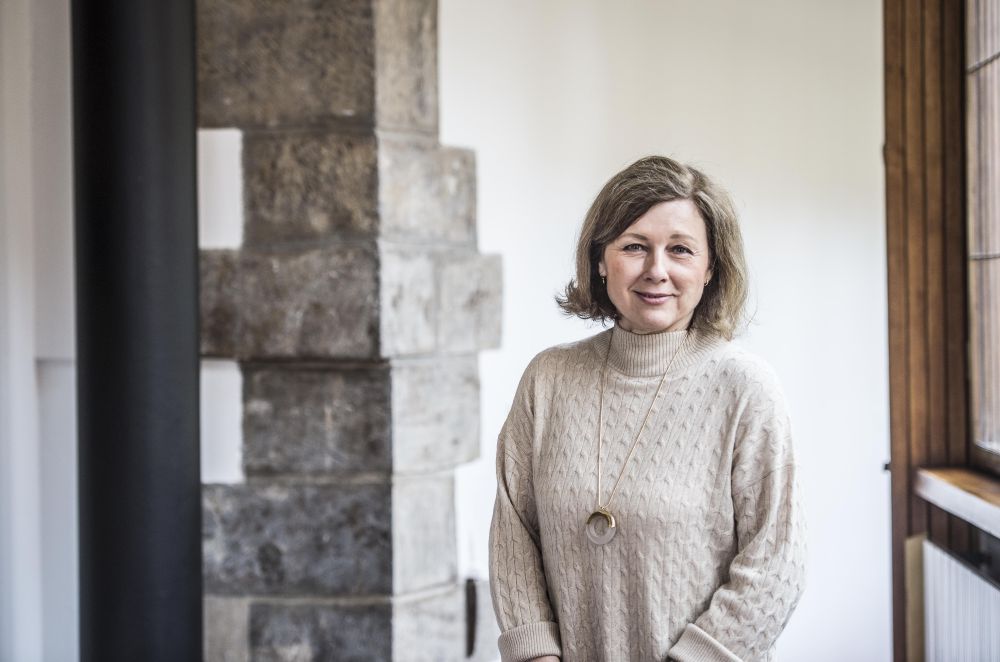
European Commission Vice-President Věra Jourová at the historic Carolinum.
“I think it will give everyone great strength to study something they want to be good at and find themselves in. It's sad when someone studies according to other people's wishes. And it is also necessary to be prepared for change and be able to adapt... When I was studying, the idea of today's world was a total utopia,” Věra Jourová says.
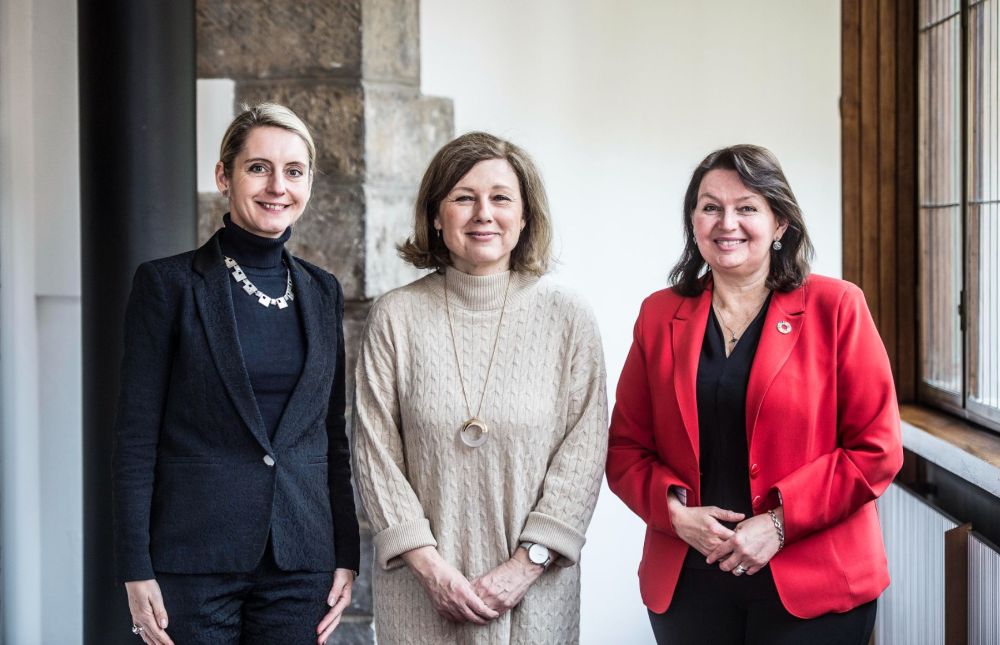
Monika Ladmanová (left), the head of the European Commission Representation, and Věra Jourová met with Rector Milena Králíčková recently.
Jourová added that she did not feel that being a woman put her at any disadvantage within the European Commission. She added a recommendation to all active women on how they can assert themselves. “My advice would be: trust yourself and don't let yourself don't let yourself be discouraged, don't admit barriers! Looking back, I also mistrusted myself many times, and in fact I still do sometimes,” she reflected in Forum.
Bradáčová: Don't lose your youthful ideals
This year, the chairwoman of the Chamber of Deputies of the Parliament of the Czech Republic, Markéta Pekarová Adamová (TOP 09), who graduated in andragogy and personnel management at the Faculty of Arts of Charles University, clinched third spot in the ranking of Forbes Czech Republic.
The fourth place was taken by Lenka Bradáčová, Prague's Chief State Prosecutor, who graduated from the Faculty of Law of Charles University. In 1998, she was awarded the Karel Engliš Prize as the best graduate in social sciences at Charles University. She currently serves on the Scientific Council of the Charles University and the Charles University Faculty of Arts, which she says she considers “an extraordinary honour and one of the greatest honours of her life”.
In an interview for Forum magazine last year, she recalled how important it is not to forget her youthful ideals: “I emphasise to law students that it is important that they do not forget what ideals they came into real practice with, and especially that they do not forget what bothered them, like me, in the first months, because if they forget it, it means that they have adapted to the system, and have abandoned the ideals... Today, I promote the ideals a little differently: the judiciary has taught me that it is not revolutionary, but evolutionary. Even though evolution in justice may not take hundreds of years, it must have a little momentum... With the experience I have, I can push things through more efficiently,” Bradáčová says.
In connection with the development of modern technologies, she also reminded that it is not good to rely only on the fact that one can look everything up on the internet; according to Lenka Bradáčová, an ideal graduate should be able to think critically, have enough theoretical knowledge and then be able to use it correctly in practice. “Theoretical knowledge is absolutely essential. I do not subscribe to the view that it is important to know only where to find information. In court proceedings - and not only there - there is no time to look for information; you must know it and be able to use it. The ideal graduate should therefore be able to apply the theoretical knowledge acquired, not just repeat it without knowing the context,” she says.
Forbes: CU rector among the most influential
As the top woman representative among domestic universities, the rector of Charles University, Professor Milena Králíčková, made it into the Forbes magazine ranking. She took over the leadership of the university last February, placing her alongside the most influential women in the Czech Republic. This year, she ranked 36th in the Forbes magazine ranking. “It's interesting that I get calls from students and other women saying that I am an inspiration to them. Or for my daughters' classmates, they say I'm an impetus to be more confident about certain positions or dreams in the future... I'm very happy about that and I hope to continue to be that positive role model.”
But there are other women in the top 50 who are associated with Charles University. Among them are Faculty of Medicine graduate and co-owner of the Vlčková Family Foundation focused on supporting children's palliative care, Katarína Vlčková, followed by Hana Blovská, a graduate of the Faculty of Mathematics and Physics at Charles University, who is now responsible for the business and operational management of the investment company Conseq, and Vladimíra Glatzová, a leading Czech lawyer and founder of one of the oldest and largest law firms in the Czech Republic (a graduate of the Faculty of Law at Charles University).
Alumnae sisters together in the second 50
Even sisters who both graduated from the Charles University - Jana Kotalíková (Faculty of Arts and Faculty of Social Sciences), the head of the Office of the Government of the Czech Republic, and Blanka Havelková (Faculty of Arts) as a member of the Board of Directors of Czech Railways - have somewhat curiously made it to the second fifty.
Among the most influential women in the Czech Republic, Forbes Czech Republic also included the President of the Academy of Sciences of the Czech Republic and a graduate of the Faculty of Science of Charles University, Professor Eva Zažímalová, the Government Commissioner for Human Rights, Klára Šimáčková Laurenčíková (a graduate of the Faculty of Education of Charles University), the Director for Equal Opportunities and EU Citizenship, Irena Moozová (Faculty of Law), and Monika Nedelková (also faculty of Law), who works as a financial arbitrator. This year's ranking includes a total of 195 names.



